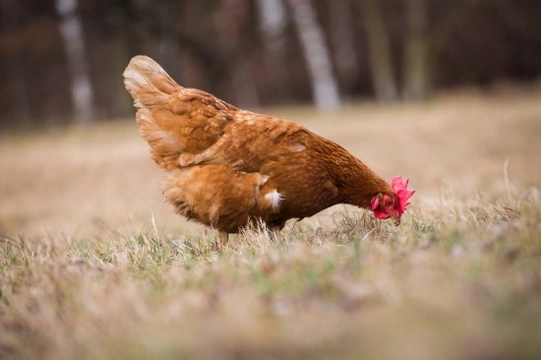
Infectious Laryngio Tracheitis in Chickens Explained
There are several rather nasty and harmful viruses that cause respiratory health issues in chickens one of which is part of the herpes family. The virus causes a condition known as infectious laryngio tracheitis (ILT) and is spread by chickens either inhaling or ingesting it. The virus then takes hold in a bird's windpipe (trachea) which causes soreness and inflammation the result being that birds appear to gasp for air.
Because affected chickens appear to be gasping from air owners often mistake the condition for gape worm. However, it's a virus infection that has taken hold and if left untreated, the inflammation becomes so severe it starts to bleed which means blood found in the bird's windpipe often starts to clot with the result being a bird may suffocate.
Symptoms to Watch Out For
Luckily, there are some pretty obvious signs to watch out which includes the following:
- Dyspnoea
- Gasping for air – much as a chicken does when they have gape worm
- Coughing – mucus may contain blood
- A drop in egg laying
- Discharge from the eyes
- Sinusitis
- Nasal discharge
Treating the Condition
The problem with this virus is that as with a lot of viruses, antibiotics don't tend to help clear up an infection. However, administering a course of antibiotics to an affected chicken would help prevent them from developing a secondary bacterial infection. A vet may also recommend giving some sort of anti-inflammatory medication to an infected bird which would help ease the discomfort they would be feeling.
There is an eye drop vaccination now available for people who only have a few birds but the drops have to be administered carefully to ensure they do not roll off the surface of a chicken's eye so it's worth discussing it with your vet.
Diagnosing Infectious Laryngio Tracheitis
When examining an infected chicken, vets can sometimes see the blood clots in their windpipes and as such they are able to remove them which is important as this reduces the risk of a bird suffocating. It is crucial to clear their airways albeit it temporarily. The problems many vets face is that making a correct diagnosis can prove hard because all too often a biopsy of the bird's windpipe would need to be taken and this is typically carried out when a chicken has already died. Blood tests have not proved very helpful either.
Living and Managing the Condition
Once a chicken has been infected with the herpes virus, they will carry it for the rest of their lives which means they run the risk of developing ILT at any time but more especially when they get stressed out. They can also pass the virus on to other birds all too easily which is especially true if their housing is poorly ventilated. Chickens that have been infected with the virus and developed the condition, must be kept in a stress-free environment once they have been treated and recovered. The rule of thumb is to keep any chickens with the virus away from any other birds you may have in your flock even when they appear to have fully recovered.
It is also really important to clean out chicken housing if any birds have suffered from the condition using a poultry friendly disinfectant that's strong enough to kill off the virus. If you have any concerns or doubts as to which disinfectant to use, you could always ask your vet to recommend a product. The thing to bear in mind is that the virus that causes ILT is related to the Marek's virus albeit distantly so the disinfectant has to be a really strong one if it is to kill off the virus.
There is a vaccine for this virus but it has to be given to chickens very precisely and it only comes in very large packs which makes it hard for people who only have a few birds to realistically get their chickens vaccinated.
Protecting Your Chickens
It's really important to protect your chickens as much as you can which means ensuring their housing has enough ventilation both during the warmer summer months and the colder winter ones. If you suspect a chicken might have developed infectious laryngio tracheitis, you should take them to the vet so a correct diagnosis can be made followed by an effective treatment to combat any secondary bacterial infection that might also have taken hold which would compromise a chicken's immune system even further. It is also crucial to quarantine any infected chickens to avoid the virus from spreading to the rest of your birds and to give them lots of TLC.
Conclusion
There are many respiratory diseases that affect chickens so it's important to recognise the signs that something may be wrong. As with many poultry health issues, the early an infection is picked up, the earlier a treatment can begin and this makes the prognosis that much better. Early treatment also makes life a lot more comfortable for any infected chickens and although like most viruses, antibiotics tend to have little effect on this particular virus, they do however, alleviate discomfort as well as reduce the risk of a secondary bacterial infection from taking hold.



